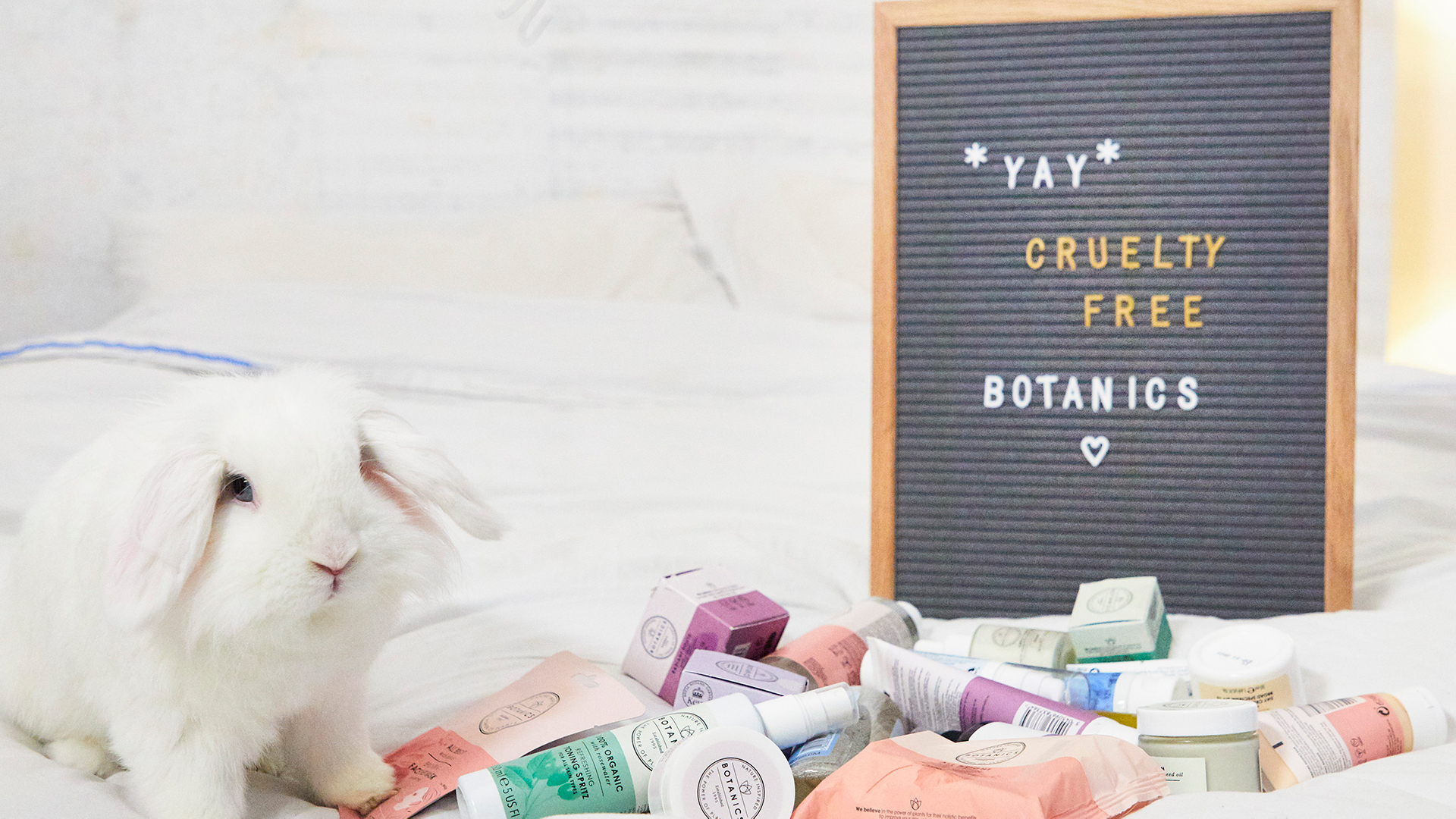Bunnies are a pretty symbolic bunch. They bring candy to kids on Easter, populate the pages of many a fairy tale and are considered a sign of fertility, luck and prosperity.
But if you’ve seen a bunny on the back of your shampoo bottle or skin serum, it’s an altogether different kind of rabbit-related symbol. It’s called the Leaping Bunny, and its presence indicates the company behind the product has made a genuine commitment to ending animal testing. And considering the United Nation’s 2030 Agenda for Sustainable Development calls for a future “in which humanity lives in harmony with nature and other living species are protected,” this isn’t just a symbol, but an important step to a more sustainable world.
“The Leaping Bunny program is essentially about a company committing to ending animal testing through its supply chain,” says Michelle Thew, chief executive of Cruelty Free International, the world’s leading organization working to end animal testing, which created the Leaping Bunny seal and administers it with its partners around the globe. “It’s not just a simple claim that a company can make. Getting Leaping Bunny approval comes after months and months of hard work and commitment.”
For Phil Cumming, global head of sustainability for Walgreens Boots Alliance, that “hard work and commitment” is symbolic of WBA’s corporate social responsibility and sustainability agenda.
“One of our main goals is to help our brands evolve to become much more of a force for good, and actually enable consumers to tackle causes they care most about,” says Cumming. “So, this year, we charged each of our Global Brands to figure out what sustainability meant for them, individually, and to bringing that to life.”
There’s already a solid history of cruelty-free testing policies within WBA – at Boots, for example, a no-animal-testing policy has been in place since 1975 – but colleagues who work on Botanics, a WBA plant-based beauty brand, felt Leaping Bunny approval takes this commitment a step further.
Explains Cumming: In the European Union, it is illegal to test a purely cosmetic ingredient on an animal. But testing of cosmetic ingredients is still allowed in other parts of the world. Leaping Bunny brands cannot use ingredients tested for cosmetics wherever that testing takes place – nor can they use new ingredients, whether originally intended for use in a cosmetic or, for example, a paint that have been tested on an animal."
Leaping Bunny certification requires companies to analyze their entire supply chain, down to raw materials – a process that took about six months for the Botanics team to complete, pulling massive amounts of data and engaging in checks and confirmations across different parts of the business.
Botanics, like all brands awarded Leaping Bunny approval (including fellow WBA skincare brand, Liz Earle), will undergo periodic independent audits carried out for Cruelty Free International – another way to ensure that when a company says it’s committed to no animal testing, it means it. For an increasing number of ethically and environmentally driven consumers, this matters.
“People want to be able to make ethical choices when they shop,” says Thew. “We believe very strongly that in order to say that something is produced ethically and responsibly, that should not involve using animals in the process.”
Cruelty Free International also has been working with the United Nations (UN) to get this issue embedded within the UN’s sustainable development goals. But according to Thew, it will be brands like Botanics that really help lead the charge to change hearts, minds and decisions.
Cumming agrees – and is hoping customers will spot the Leaping Bunny symbol on more WBA Global Brands products in due time.
“We’re proud of becoming part of a global movement, through our brands, to help bring an end to cosmetics testing on animals anywhere in the world,” says Cumming “It’s not something that any one company, any one government or campaign group can do on its own. It's a global goal that requires everyone, including consumers, to work together and demand change, which is a big part of what CSR and sustainability is all about.”



